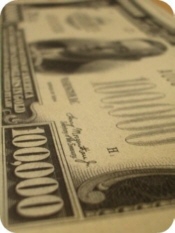Federal appeals court holds that plaintiff failed to satisfy all elements of the Anticybersquatting Consumer Protection Act in action against competing airline
The federal Anticybersquatting Consumer Protection Act (ACPA) [15 U.S.C. 1125(d)] is a provision in U.S. law that gives trademark owners a cause of action against one who has wrongfully registered a domain name. In general, the ACPA gives rights to owners of trademarks that are either distinctive or famous at the time the defendant registered the offending domain name.
The Eleventh Circuit Court of Appeals recently affirmed the decision of a lower court that dismissed an ACPA claim, holding that the plaintiff failed to plead that its mark was distinctive at the time of the domain name registration.
Plaintiff sued its competitor, who registered the domain name tropicoceanairways.com. Defendant moved to dismiss, and the lower court granted the motion, finding that plaintiff failed to plead that its mark TROPIC OCEAN AIRWAYS was distinctive and thus protected under the ACPA. On appeal, the Eleventh Circuit affirmed the dismissal, holding that plaintiff’s complaint failed to allege that the mark was either suggestive or had acquired secondary meaning as an indicator of source for plaintiff’s services.
Suggestive marks are considered distinctive because they require “a leap of the imagination to get from the mark to the product.” (The court provided the example of a penguin used as a mark for refrigerators.) In this case, the court found the term “tropic ocean airways” was not suggestive, as it merely “inform[ed] consumers about the service [plaintiff provided]: flying planes across the ocean to tropical locations.”
The court rejected plaintiff’s argument that a pending application at the United States Patent and Trademark Office to register the mark proved that it was suggestive. While a certificate of registration may establish a rebuttable presumption that a mark is distinctive, the court held plaintiff was not entitled to such a presumption here, where the application remained pending. Moreover, the court observed in a footnote that the presumption of distinctiveness will generally only go back to the date the application was filed. In this case, the trademark application was not filed until about a year after the domain name was registered.
As for the argument the mark had acquired secondary meaning, the court found plaintiff’s allegations to be insufficient. The complaint instead made conclusory allegations about secondary meaning that were insufficient to survive a motion to dismiss. The court held that plaintiff failed to allege the nature and extent of its advertising and promotion, and, more importantly, did not allege any facts about the extent to which the public identified the mark with plaintiff’s services.
Tropic Ocean Airways, Inc. v. Floyd, — Fed.Appx. —, 2014 WL 7373625 (11th Cir., Dec. 30, 2014)
Evan Brown is an attorney in Chicago helping clients with domain name, trademark, and other matters involving technology and intellectual property.

